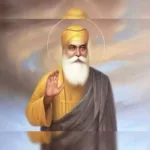Celebrate Bhagat Singh Jayanti 2024 by paying tribute to India’s fearless martyr. Learn about his legacy, life, and contributions to India’s freedom struggle.

Bhagat Singh Jayanti is celebrated every year on September 28th to honor one of India’s most revered freedom fighters, Bhagat Singh. His life and sacrifice continue to inspire generations of Indians who revere his courage, patriotism, and dedication to the country’s independence. Bhagat Singh’s fearless spirit and revolutionary ideas made him a prominent figure in India’s freedom movement. As we approach Bhagat Singh Jayanti 2024, it’s an ideal time to reflect on his contributions and pay tribute to his enduring legacy.
Early Life and Ideological Influences
Bhagat Singh was born on September 28, 1907, in Banga, a small village in present-day Pakistan. His family was deeply involved in the freedom struggle, which influenced young Bhagat Singh’s mindset from an early age. His father and uncles were active participants in the Ghadar Movement, which aimed to overthrow British rule in India. This environment instilled a strong sense of nationalism and a desire for independence in Bhagat Singh.
As a teenager, Bhagat Singh was profoundly influenced by the Jallianwala Bagh massacre in 1919, where British troops killed hundreds of unarmed civilians. This tragic event deepened his resolve to fight against the British Raj. He became associated with the Hindustan Socialist Republican Association (HSRA), a group that sought to achieve freedom through armed resistance. He believed that “बम और पिस्तौल क्रांति नहीं लाते, बल्कि क्रांति की तलवार विचारों की धार पर तेज होती है।” This quote reflects his belief in the power of ideas over violence.
The Revolutionary Path
Bhagat Singh was not just a freedom fighter; he was a revolutionary thinker who envisioned an independent India free from social and economic inequalities. He believed that true freedom could only be achieved when both political and social structures were reformed. His ideas were heavily influenced by socialist ideologies and leaders like Karl Marx and Vladimir Lenin.
One of Bhagat Singh’s most notable acts of defiance was the Lahore Conspiracy Case. On December 17, 1928, Bhagat Singh, along with Shivaram Rajguru and Sukhdev Thapar, assassinated British police officer John Saunders. The act was meant to avenge the death of Lala Lajpat Rai, who had been brutally beaten by police during a protest. This event marked Bhagat Singh as a key figure in the Indian revolutionary movement. His famous words, “किसी भी व्यक्ति को क्रांति शब्द की व्याख्या उसके अपने लाभ के अनुसार नहीं करनी चाहिए,” remind us of his commitment to a broader revolutionary ideal.
The Assembly Bombing and Trial
Another significant event in Bhagat Singh’s life was the Central Legislative Assembly bombing on April 8, 1929. Along with Batukeshwar Dutt, Bhagat Singh threw non-lethal bombs into the Assembly chamber in Delhi. The objective was not to harm but to make the “deaf” British government “hear” the voice of the oppressed. Following the bombing, Bhagat Singh and Dutt surrendered willingly, using their trial as a platform to promote their cause for freedom.
Bhagat Singh’s trial received widespread media attention, and he used this opportunity to articulate his revolutionary ideals. His famous slogan, “इंकलाब जिंदाबाद” (Long Live the Revolution), became a rallying cry for the freedom struggle. Despite numerous efforts to save him, Bhagat Singh was sentenced to death.
The Legacy of Martyrdom
Bhagat Singh, along with Rajguru and Sukhdev, was executed on March 23, 1931, at the young age of 23. His martyrdom transformed him into an iconic symbol of resistance against British rule. Even in death, Bhagat Singh’s influence continued to inspire countless individuals to join the fight for India’s independence. He once said, “जिंदगी तो अपने दम पर ही जी जाती है, दूसरों के कंधे पर तो सिर्फ जनाजे उठाए जाते हैं,” a testament to his belief in self-reliance and courage.
How to Celebrate Bhagat Singh Jayanti
On Bhagat Singh Jayanti, people across India pay homage to the great martyr through various events and activities. Schools and colleges organize debates, essay competitions, and plays to educate students about his life and ideals. Social media is flooded with tributes, quotes, and images of Bhagat Singh, keeping his memory alive in the digital age.
Many visit the Shaheed Bhagat Singh Museum in his ancestral village in Punjab to learn more about his life. Additionally, several organizations conduct seminars and discussions to spread awareness about his contributions to the freedom struggle.
Conclusion
Bhagat Singh Jayanti 2024 is not just a day to remember a revolutionary freedom fighter; it is an opportunity to reflect on the values he stood for. His vision of an independent, egalitarian India is still relevant today. As we celebrate Bhagat Singh’s legacy, let us strive to uphold the ideals of justice, equality, and freedom that he so passionately advocated for. In remembering Bhagat Singh, we honor not just the man, but the spirit of a nation’s struggle for freedom. His words, “मेरा धर्म देश की सेवा करना है और सभी इंसानों को बराबर समझना है,” continue to resonate with those who believe in a just and free India.




